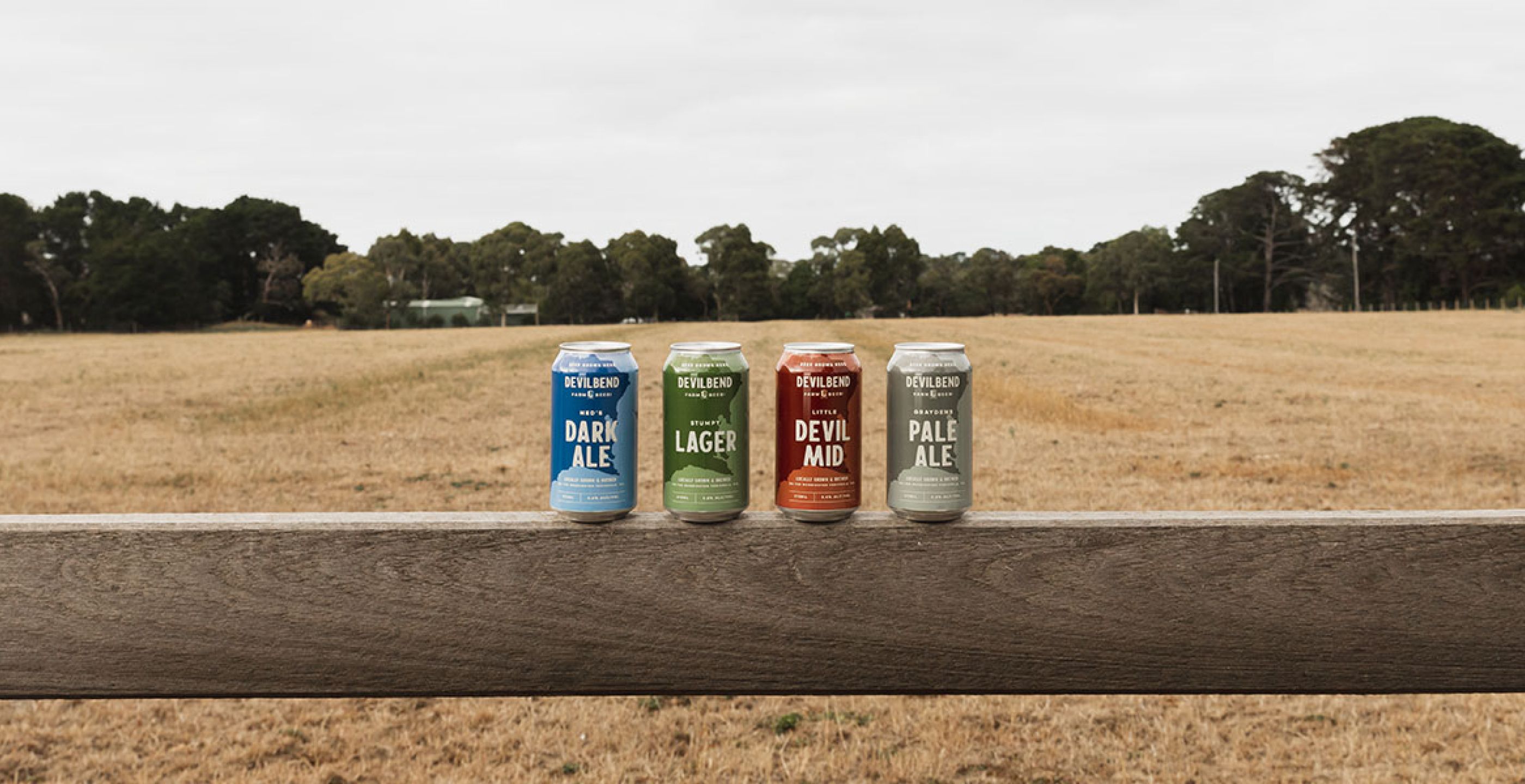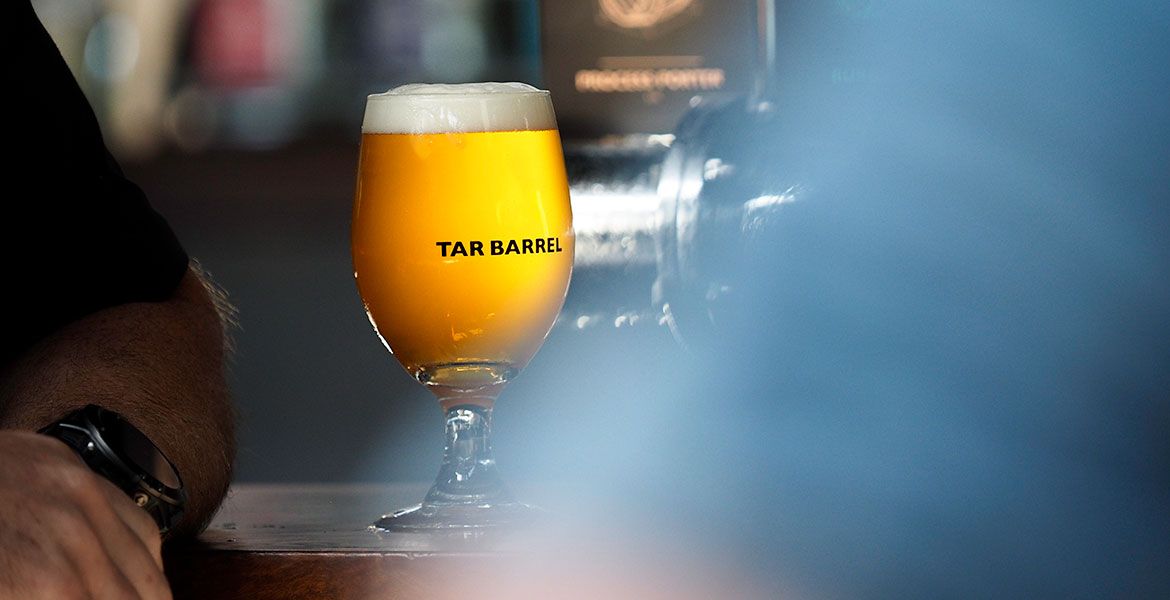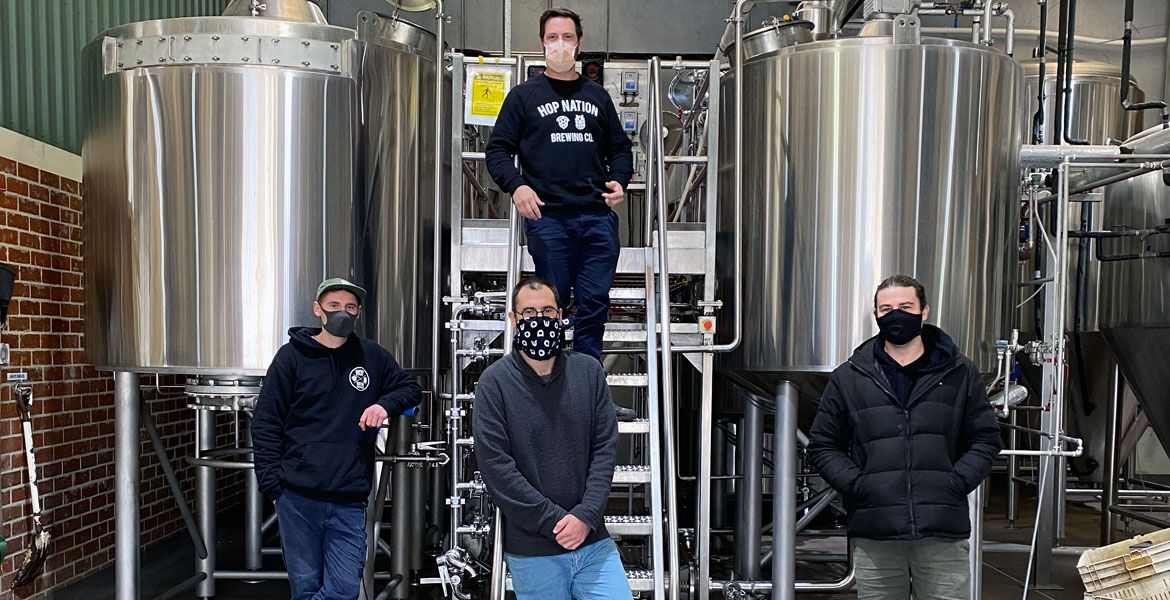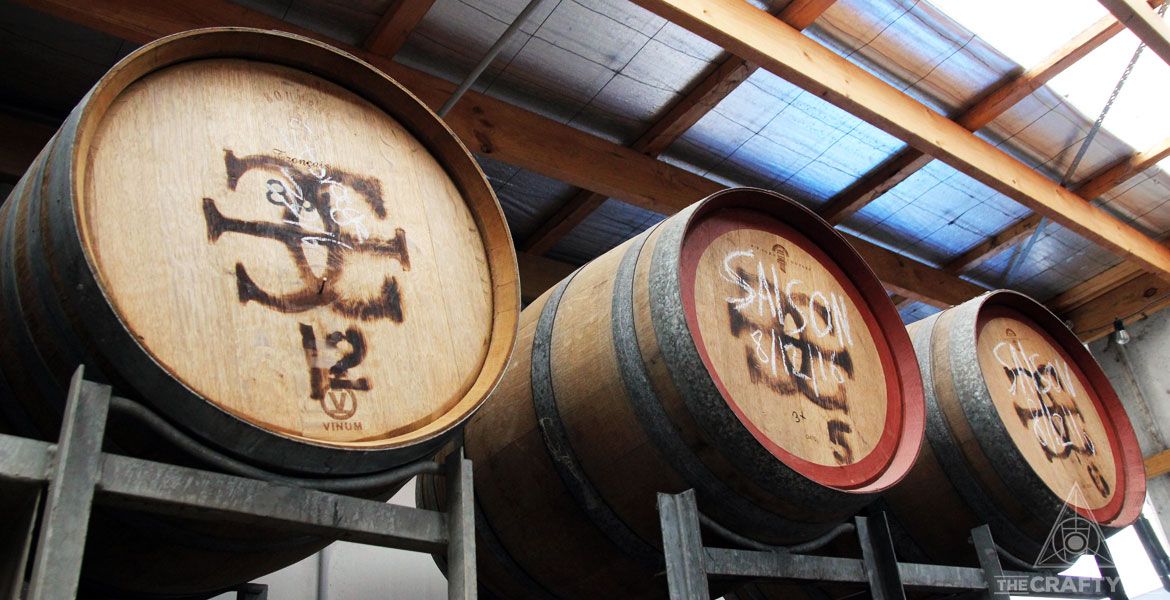Family-run. Sustainably-brewed. Community-minded. Local.
They’re terms that are often championed by craft brewers and appeal to beer drinkers and, indeed, any consumer looking for a more ethical way to drink or dine out. And Devilbend Farm Beer Co is a new brewery on the Mornington Peninsula that is uniquely positioned to champion those ideals and will soon be one of the most idiosyncratic breweries you can visit in Victoria.
Located in Teurong, the brewery is named after a local reservoir and has been founded by two brothers, Mike and Owen Shaw, who have a long history of farming on the Peninsula. They’re fourth-generation farmers whose kids are involved in the family trade too, with their decision to start a brewery following the more recent purchase of a new block of land.
“Primarily, we were dairy and chicken farmers, but we purchased this property about five years ago,” Mike says.
“In a previous life, it was an apple orchard. Apples were a mainstay of farming on the Peninsula 30 or 40 years ago but now it’s almost nonexistent.”
Despite the apple trees being long gone, the farm still retains its cool stores and a rustic old shed that was used to pack apples, a part of history they were eager to keep alive for future generations.
“We wanted to repurpose the shedding to retain the history of the buildings and provide them with a different agricultural purpose to keep them going into the future,” Mike says.
“Otherwise, they would have declined, been bulldozed over eventually, and you lose all that.”
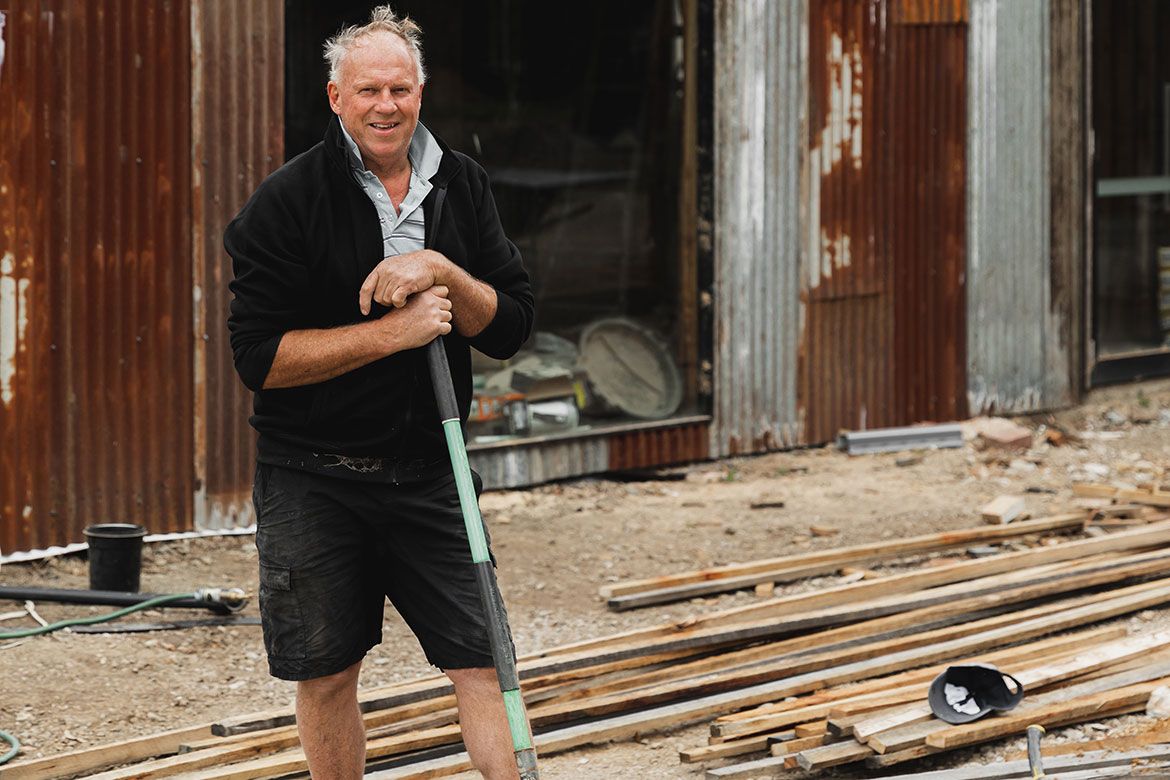
The 83-acre property might make for a substantial brewery but it’s something of a small-scale farm. To keep it operating as a working farm on the Mornington Peninsula, they knew they'd need a way to add value to what they grew.
“Agriculture has needed to chase scale to be commercially viable and land holdings down here are small and enormously expensive,” Mike says. “So, it’s almost impossible to get the commercial scale to be a commercial producer unless you’re doing something like we are and you have a cellar door and are selling what you grow to the public.”
So, while they could have started planting vines and become a winery cellar door, or replanted the apple trees and waited for them to mature, neither brother was really into wine or cider. They did, however, like beer.
“The concept became introducing grain growing onto the Mornington Peninsula that virtually nobody was doing,” Mike says.
Their grain will be going straight into Devilbend’s beers: Planet barley has been planted as a base malt and their first wheat crop has just being malted. While Mike and Owen enjoy beer, they don’t know how to brew so reached out to Michael Stanzel to consult on their nascent brewing operation.
“You couldn’t not love this project,” Michael tells The Crafty Pint. “I came in to consult and I’m here full-time now.”
The brewhouse is a three-vessel, 15-hectolitre system from Bespoke Brewing Solutions, with whom Michael had already worked on Burnley Brewing’s recent expansion. It's been designed to allow him to brew traditional beers like those he learned to brew in Germany but it also allows them the flexibility to make whatever takes his fancy.
“It’s extremely versatile," he says. "The mash and lauter tun are separate so we can really emphasise what we can do with the malts using a step mashing process. But we’ve got a lot of modern equipment like a hop gun for hypey IPAs and we can do kettle sours quite easily too."

But it's an item sitting upstairs in the old apple shed that's probably the most exciting part of the whole production for Michael.
“Actually, it’s definitely the most exciting part,” he laughs. “We’ve installed a coolship in the attic. It’s literally a farm, so farmhouse ales fit so well and, with the coolship, we want to use grains, water and hops from here and then yeast and bacteria from the property as well.”
Brewing estate farmhouse ales puts them in a minuscule group of Australian brewers, aided by a substantial hop garden they've planted that repurposes waste from the brewhouse.
“The hop garden is irrigated by the brewery wastewater, we have subsurface irrigation in place,” Mike says.
Ben, one of Mike’s sons, has designed the hop garden, where their initial focus is on growing Perle, Australian Cascade and Columbus.
“That gives us a good bit of variety,” Michael says. “With Australian Cascade, we can get some grapefruit, citrusy flavours, then some dank from Columbus, and noble hop character from the Perle.”
Initially, Voyager Craft Malt are malting their Teurong crop but Mike says the next phase of their evolution will include bringing that process in-house; they’re keen to work with other, less-common grain types too.
“As time goes on, we definitely will experiment with other barley varieties,” Mike says. “Whatever Michael says that he wants, we will have a crack at to some degree.”
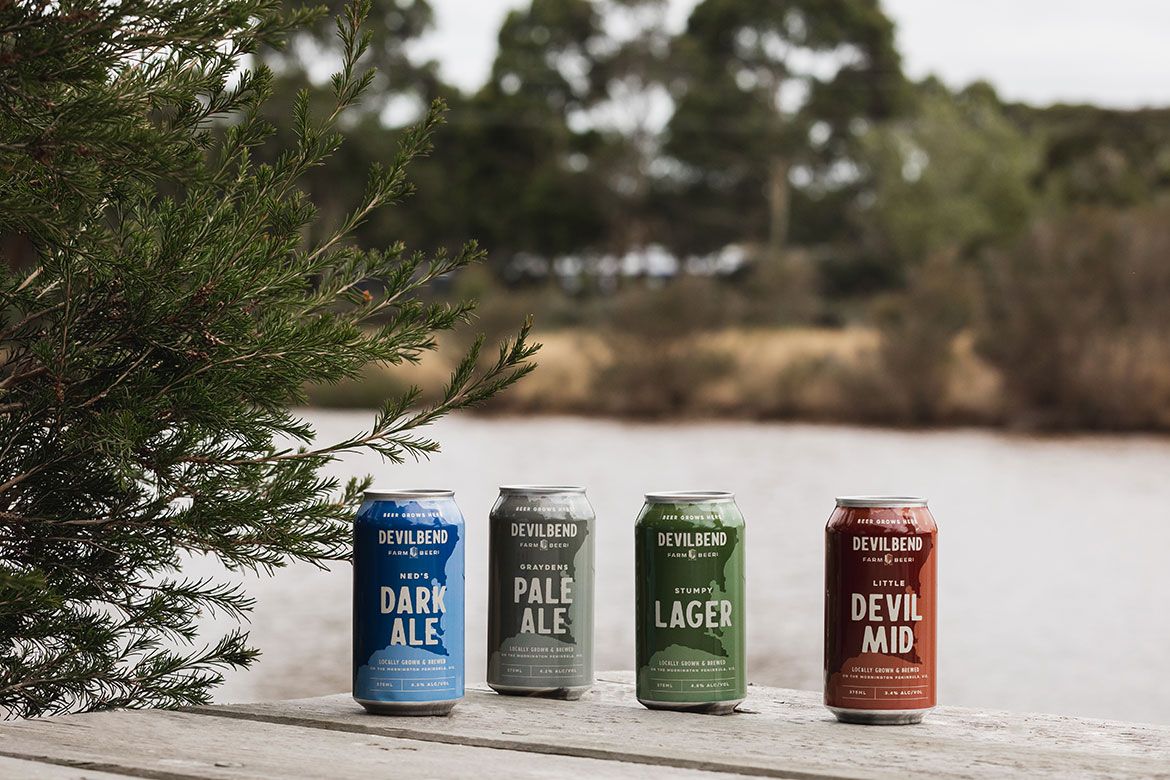
While they won’t be brewing beer with entirely their own ingredients, their annual crop is set to be their base malt. It means the beers will inherently be tied to the farm – and they want to develop that terroir further. With three other properties on the Peninsula, they can expand their farming to those nearby farms and offer a glimpse into the slight differences in what's grown on each.
Devilbend’s general manager, Jacob Cowley-Smith, says that, beyond working with what they grow, they also want to be able to collaborate with fellow Peninsula farmers.
“The focus is on what we grow and produce here,” he says. “But we want to work with others where it makes sense too.’
The sustainable ethos and using what they can grow runs deep: solar panels are installed and the food menu will make full use of vegetables grown on the farm. Like many breweries, their spent grain will keep livestock well-fed, while the Shaws' cattle and chickens will keep taproom visitors well-fed too.
“The menu will speak to our paddock-to-pint philosophy; they will have paddock-to-plate in the kitchen too," Jacob says. "The hospitality for us is a really important pillar: showing people the fruit of this land, and everything will be low impact, locally-sourced food.”
That taproom is set to open by the end of May and, when it does, the Mornington Peninsula will be all that brighter as a destination for family-run, sustainably brewed and local beer.
When it opens, you'll be able to visit Devilbend at 990 Stumpy Gully Road, Tuerong. You'll also find it and hundreds of other good beer venues on our free Crafty Pint app.



